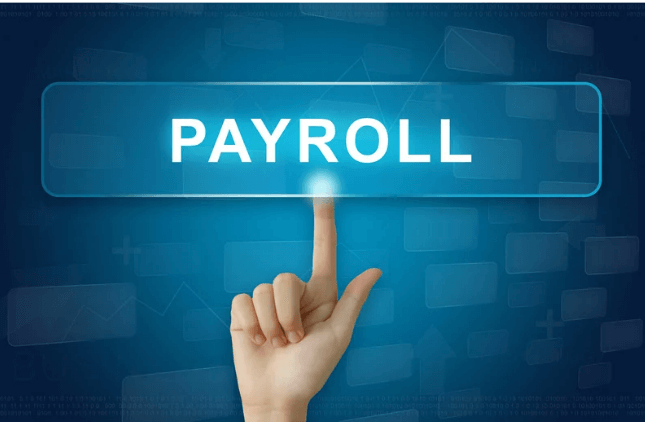Key Points:
1. AI and Machine Learning are automating many accounting tasks like data entry and reconciliation, allowing accountants to focus on higher-value activities.
2. Cloud-based accounting is growing, offering businesses flexibility, remote access, and collaboration in managing financial data.
3. ESG (Environmental, Social, and Governance) reporting is becoming more essential, with accountants playing a key role in guiding clients through sustainable business practices.
4. Blockchain technology is transforming the accounting landscape by simplifying ledger maintenance, increasing transparency, and reducing the risk of fraud.
With the emergence of accounting industry trends 2024, many changes have taken place in the world. Though these differences weren’t as impressive as most of us were expecting, the growth of technology has resulted in a new, futuristic era. Advancements in technology and automated functions are on the rise at the moment.
In the accounting future, technological advancement is a long way to go as far as the accounting industry is concerned. Still, it has already begun to function and adapt to these new developments. We are rapidly approaching trends in the accounting industry with cutting-edge technical solutions, including Software-as-a-Service (SaaS), on-premise programs, cloud-based subscriptions, and more.
In this article, we will talk about these top trends in the accounting industry. So, let’s get started:
Top Accounting Trends for Businesses |Top Trends in Accounting Industry

Top trends for accounting industries are mentioned below:
Artificial Intelligence (AI) & Machine Learning (ML)
Most accounting-related tasks, including data input, reconciliation, and financial reporting, are currently automated with the help of AI and ML. Given that these technologies are becoming more advanced and affordable, we expect to see even greater use of AI & ML in 2024.
According to a study, the market for artificial intelligence in accounting is anticipated to grow to USD 53,893 million by 2030.
Enhancement in Data and Analytics
Most accounting-related tasks, including data input, reconciliation, and financial reporting, are currently automated with the help of AI and ML. Given that these technologies are becoming more advanced and affordable, we expect to see even greater use of AI & ML in 2024.
According to a study, the market for artificial intelligence in accounting is anticipated to grow to USD 53,893 million by 2030.
There is an increasing demand for accountants to offer business insights to their clients. They must be capable of collecting, analyzing, and interpreting huge amounts of data to do this. We will likely see accountants use more advanced data analytics technologies and methods in 2024 to give their clients more insightful information.
Cloud-Based Accounting

For most firms, cloud computing and accounting services are now profitable and essential. Several companies now benefit from the convenience of quickly accessing their digitally hosted accounting systems from anywhere and anytime because of cloud-based systems.
You can work on editing, copying, sharing, and working on the files together in addition to having access to the “Read Only” versions of the data. This allows you to keep track of Expenses, Sales, and Inventory.
Huge Amount of Data
When it comes to completing important financial tasks, big data has always been the preferred choice for financial gurus and accountants.
The use of this technology type is essential for converting crucial internal data sets into secure, dynamic data analysis. It has also continuously helped convert such assessments into useful insights. Future trends in the accounting industry are being driven by the possibility of big data becoming more proactive, which is occurring slowly but surely in the finance industry.
Sustainability and ESG Reporting
Reporting on problems related to the environment, society, and governance, or ESG, is becoming more and more crucial for companies of all sizes. When it comes to developing and implementing ESG reporting plans for their customers, accountants can be an invaluable asset. We can anticipate witnessing an increasing number of accountants become involved in ESG reporting in 2024.
Outsourcing Accounting
Most industries have seen significant change due to automation, and accounting is no exception. With comprehensive solutions, the management process has become entirely computerized. It helped in removing misinterpretations and errors.
Businesses are more vulnerable to financial fraud and compromised privacy violations since their activities depend on computers and servers. Therefore, there is an increasing demand for internal auditors to verify the accuracy of the data and financial inputs.
Blockchain
Blockchain has seriously transformed the accounting sector in recent times. Blockchain has significantly changed the accounting industry’s circumstances. The expense of ledger maintenance and reconciliation has gone down. Professionals can also assess their company’s duties and finances with simplicity and transparency because of blockchain technology.
It makes sense that several wallets are created to transact on the blockchain.
Advisory Services
Owners of companies should stay updated on emerging trends and innovations in technology. They need to use advisory services that can offer advice on issues like maximizing the use of current accounting software or using new technologies to optimize the accounting industry.
The majority of the insights offered by Advisory Services are true. Adopting this will boost revenue significantly while maintaining human resources.
Evolution of the Accountants
Accounting transactional work will become more automated in the future, and accountants will be considered leaders and decision-makers more and more. Accountants are becoming more and more dependent on soft skills, leadership, and other emotional intelligence-related characteristics.
These abilities, along with instruction on how to integrate financial know-how and data analytic insights into accounting patterns, will pave the way for successful future professions.
Data Security
Finance departments are among the top targets for data breaches, which are becoming more common. Violations may result in identity theft, which is the theft of credit card numbers and personal information, as well as spoofing, which is the modification of emails to look like they are from reliable and well-known sources.
Accounting employees, who are already adept at analyzing the data and identifying errors, will continue to need training in identifying potentially dangerous emails and spotting attacks. The accounting department may promote cybersecurity for your company by sharing its importance.
Technology
The day-to-day duties of many accounting firms are strained by growing offers and a declining workforce. Automation will continue to be a common tool in 2024 to reduce pressure imposed by heavy workloads.
As our industry’s scope and complexity expand, businesses will be able to make up for the capacity issues we currently face. Remote employment and education are becoming more and more popular, and this trend is not going away. This implies that the accounting sector will see an increase in the number of tools that support an ongoing hybrid work style.
Forensic Accounting
Businesses will need the help of forensic accountants in 2024 since setting up and keeping up efficient internal controls is essential.
If there were a recession in economic activity, many businesses would struggle to maintain regulatory compliance due to reduced staff. In 2024, there will be a record need for forensic accountants with knowledge of internal controls and how they relate to compliance.
There is an increase in white-collar crimes such as insurance fraud, employment fraud, and identity theft. Forensic specialists can assist companies in exploring digital protections against such breaches.
Conclusion
Accounting is becoming more intelligent, secure, and time-efficient due to advanced technology trends. Accounting companies can boost corporate productivity, save time, and automate activities with modern technologies. Trends in the accounting profession are enabling business owners to improve revenue and operational efficiency while needing less worry, expense, and effort.
Frequently Asked Questions (FAQs)
Q.1: What are the new trends in accounting?
Ans 1: Every industry agrees that artificial intelligence (AI) can and will have a significant impact on accounting and finance. Businesses are automating recurring, low-impact processes with artificial intelligence (AI) and robotic process automation (RPA), freeing up accountants’ time for higher-impact and higher-value work.
Q.2: How is the accounting industry evolving?
Ans 2: Accounting firms have many opportunities to improve and broaden their client relationships due to their move from backwards-facing reporting to more suggesting services. Accounting firms may prepare themselves for future success using appropriate tools, even with limited time and human resources.
Q.3: What is ESG accounting?
Ans 3: The accounting profession has faced challenges about whether and how reporting rules and procedures should change in accordance with investors’ increasing demands for ways to align their investment strategies with environmental, social, and governance (ESG) criteria.
Q.4: What is the future growth of accountants?
Ans 4: From 2022 to 2032, the employment of accountants and auditors is expected to grow by 4%, or roughly as fast as the average for all occupations. Over a period of ten years, there are expected to be, on average, 126,500 jobs available for accountants and auditors annually.
Also read:




